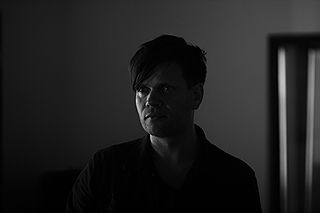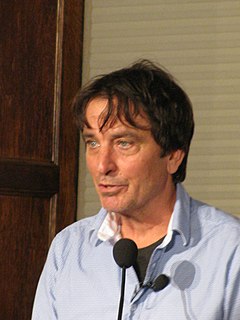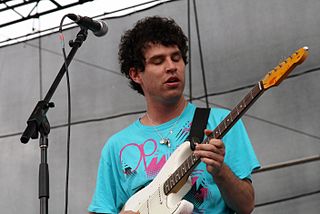A Quote by Max Martin
If you listen to the first, second, and third chorus of a song, they don't sound the same. It's the same melody and all that, but what really happens is that the energy changes. It's all about getting the listener to keep his or her concentration.
Related Quotes
On Sharon Stone (Quick and the Dead): 'She was instrumental about me getting my first American job. Absolutely, without her support, it would not have happened. At the same time, however, was it really about me or her wanting to flex her producerial muscles? I don't want to sound ungallant about the situation. But I didn't find that in working with her, that we clicked on any other level.
One of my main problems with music is that the basic formula is always the same: verse, chorus, verse, chorus, bridge, verse, chorus, chorus, chorus, end. One of the bands that changed that was The Beatles. If you listen to 'Everybody's Got Something to Hide Except Me and My Monkey.' It's three verses, bridge, end.
...the story of a man who saw three fellows laying bricks at a new building:
He approached the first and asked, What are you doing?
Clearly irritated, the first man responded, What the heck do you think I'm doing? I'm laying these darn bricks!
He then walked over to the second bricklayer and asked the same question.
The second fellow responded, Oh, I'm making a living.
He approached the third bricklayer with the same question, What are you doing?
The third looked up, smiled and said, I'm building a cathedral.
At the end of the day, who feels better about how he's spent his last eight hours?
When you sit down and write a song, you kind of have the idea for the song, and you sit there at the piano and you kinda just write it. And then of course later there's some dinking around with it and changing some stuff. But there's this thing that happens when the song first comes out, that sort of magic when it first comes out of the ether, and you can't even really explain where it comes from. That happens so much with music, and people understand that with music. But I really think that a lot of movie and TV should be the same way.
His desperation and misery swept her up like a storm capturing the sea. She turned her mind to even these feelings, because they were his, like his terrified rage in the lift when they had first met, being wrapped in his arms in the cold well, being dazzled by his wonder at the woods and her home and her. Like being a child, awareness of him the morning chorus that woke her and the lullaby that sent her to sleep, his thoughts always her first and last song.I love you, Kami told him, and cut.
I offer Emily half of my hit of acid- Love Saves the Day. It's my second or third time tripping, Emily's first, and she's understandably trepid. Awake all night, at one point I find her touching her reflection in a cruelly lit dorm bathroom, asking if she'll ever be the same. I kiss her then for the first time and whisper, No.
I've been very lucky in that the studios really respect me and they give me all my creative freedom. But nevertheless, they are inputs, they have opinions. It's the same thing for me as if you're in a shower and you're coming up with a tune, with a melody, but there are 70 people trying to sing their own melody at the same time. So you have to focus and concentrate, and not lose the track of your melody.
When the Beatles wrote 'Paperback Writer,' it couldn't have been the same old thing. You can hear so many influences in it, from the blues to Bach, and it's not just verse, chorus, verse, chorus, bridge chorus. They start off singing a cappella, almost like a Bach chorale, and the song goes into this bluesy guitar riff.
'Conservation' (the conservation law) means this ... that there is a number, which you can calculate, at one moment-and as nature undergoes its multitude of changes, this number doesn't change. That is, if you calculate again, this quantity, it'll be the same as it was before. An example is the conservation of energy: there's a quantity that you can calculate according to a certain rule, and it comes out the same answer after, no matter what happens, happens.






































